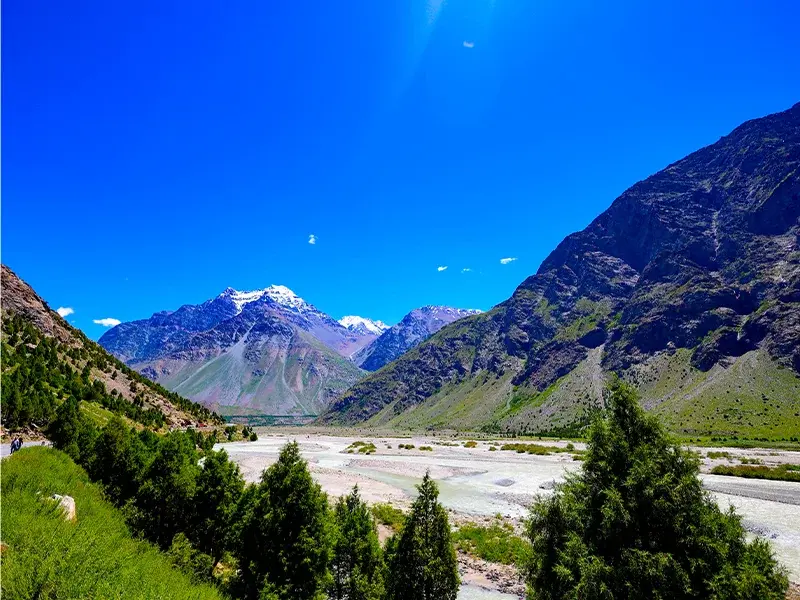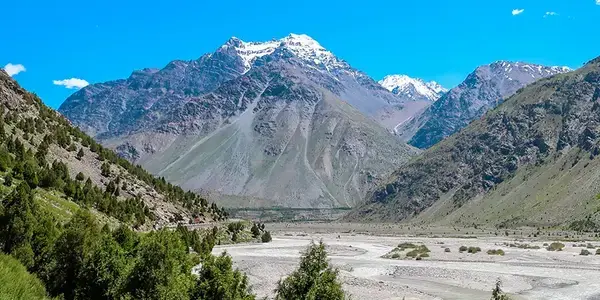


Jispa Village Lahaul is a historically rich town with a deep history of Himalayan trade and travel. In the past, it was a significant stopover on the old Indo-Tibetan trade route, where Indian and Tibetan traders traded salt, wool, herbs, and grain. On account of its location on the Bhaga River and close to Baralacha Pass, Jispa was an overnight stopover that attracted caravans traveling towards Zanskar and Leh. As time went by, the village welcomed&nbs ...

Places To Visit In Lahaul Valley
Top places to visit in Lahaul Valley.
.webp)
Images Of Lahaul Valley
Experience Lahaul’s raw landscapes, mountains and villages through images
Places To Visit In Lahaul Valley
Images Of Lahaul Valley
Before you pack your bags for Jispa Village Lahaul, here are some important things to keep in mind:
🕒 Best Time to Visit Jispa Village Lahaul:
Plan your trip between May and October. This is when the weather is clear, roads are open, and the temperature ranges between 10°C to 20°C. Winters bring heavy snowfall and road closures.
🧥 Clothes to Pack:
Even in summer, carry warm clothes. Essentials include thermals, fleece jackets, windcheaters, gloves, and woolen socks. Night temperatures drop sharply due to high altitude.
📑 Documents Required:
Carry valid ID proof like Aadhar, Voter ID, or Driving License. If you’re heading toward Leh or crossing Rohtang Pass, you might need a permit (especially for non-Himachal vehicles).
💊 Medicines:
Pack altitude sickness medicines like Diamox, painkillers, ORS, band-aids, motion sickness tablets, and a basic first-aid kit. Always keep your personal medicines handy.
Planning wisely ensures a safe and memorable experience in Jispa Village Lahaul.
June to September – Ideal for camping and scenic travel
Jispa Village Lahaul is a historically rich town with a deep history of Himalayan trade and travel. In the past, it was a significant stopover on the old Indo-Tibetan trade route, where Indian and Tibetan traders traded salt, wool, herbs, and grain. On account of its location on the Bhaga River and close to Baralacha Pass, Jispa was an overnight stopover that attracted caravans traveling towards Zanskar and Leh. As time went by, the village welcomed Buddhism, as seen in the local tradition and surrounding monasteries. The Jispa Himachal Tourism museum also contains traditional artifacts, equipment, and costumes that tell of the region's cultural development. Presently, Jispa Village Lahaul remains a serene reminder of Himalayan history—unchanged, serene, and conserved over generations.
🌍 Located at an altitude of approximately 10,500 feet (3,200 meters)
🏞️ Lies on the banks of the Bhaga River, ideal for riverside camping
🌌 Famous for clear skies, perfect for stargazing and night photography
🛣️ A major halt on the Manali–Leh Highway, often used by bikers and road trippers
🧘 A peaceful spot with minimal network, ideal for a digital detox
🏕️ Offers tent stays and homestays with stunning views of Lahaul Valley
🏛️ Home to a Himachal Tourism museum displaying local history
❄️ Even in summer, nights are cold, requiring warm layers
🧗♂️ Starting point for treks and high-altitude adventures
🚫 Closed in winter due to heavy snowfall and blocked roads
Residents of Jispa Village Lahaul narrate stunning stories that have been passed down generations. One of these is about exhausted merchants who were convinced that the Bhaga River's waters possessed healing properties. Legend has it that meditating along the river gave travelers insight and additional fortitude before they set off on their perilous mountain trek. Another popular tale is of monks who spent winters in Jispa, deep into meditation in caves above the valley. There are also rumors of spiritual appearances on full moon nights near the river banks, which are interpreted by villagers as a sign of divine power. Though these tales incorporate myth and memory, they impart a touch of magic to the unadulterated beauty of Jispa Village Lahaul, so it seems like something more than a picturesque stoppage—indeed, it seems like a destination where time stands still. Time tells secrets from the mountains.
A valley is a low-lying area between hills or mountains, often formed by the erosion of water or glaciers. Valleys are characterized by their U-shaped or V-shaped profiles and can contain rivers, streams, and fertile land.